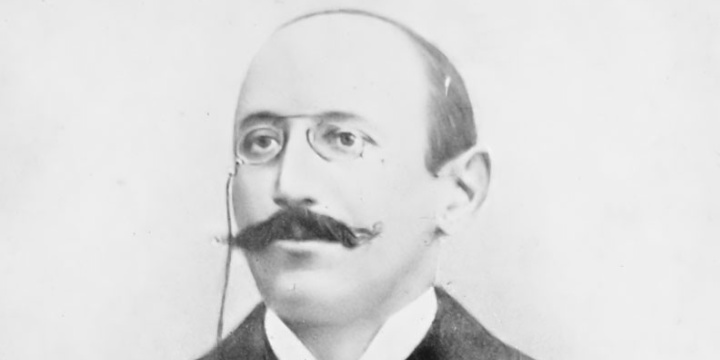
 Przez Kneecap wstydzę się, że jestem Irlandczykiem
Przez Kneecap wstydzę się, że jestem Irlandczykiem
Brendan O’Neill
Tłumaczenie: Małgorzata Koraszewska
Kanye czuli się do człowieka, który zorganizował największą zbrodnię XX wieku, Kneecap chwali armię antysemitów, która dopuściła się najgorszego aktu brutalnej nienawiści rasowej w XXI wieku. Kanye podziwia dyktatora, który dał zielone światło uprzemysłowionemu spaleniu sześciu milionów Żydów, Kneecap podziwia neofaszystowską milicję, która 7 października 2023 r. zniszczyła ponad tysiąc głównie żydowskich istnień. Dwa bardzo różne zespoły hiphopowe zjednoczone ponurą fascynacją gnojami, którzy zabijają Żydów.
Ale rzecz w tym, że podczas gdy przebudzona lewica potępia Kanye, chwali Kneecap. Potępia fanatyczną miłość Kanye’a do Hitlera jako dowód na jego zaburzenia umysłowe, ale broni otwartych flirtów zespołu Kneecap z faszystami z Hamasu jako odważnego sprzeciwu wobec „imperializmu”. Nie można prosić o lepszy dowód na to, jak dzisiejsza modna nienawiść do Izraela grilluje umysły i niszczy moralną wrażliwość tych, którzy pozują na postępowych. To, że londyńskie burżuazyjne, wypasione bachory podrygiwały w ekstazie, kiedy Kneecap wychwalał rasistowskich morderców Izraelczyków, jest samą esencją kryzysu cywilizacji.
Kneecap to rapujące trio z Belfastu. To teatralni gówniarze przybierający pozę irlandzkich rebeliantów. Jeden z nich ma 35 lat i nosi trójkolorową kominiarkę. Rapują o braniu ketu i nienawiści do „Brytów”. To wprawia gnojków z Shoreditch i inne afektowane chujki w ekstazę, a jednocześnie doprowadza do szału takie media jak „Daily Mail”. I naprawdę nienawidzą Izraela. Oczywiście, że tak. Jak inaczej można pozostać ulubieńcem „Guardiana”, BAFTA i każdego innego wpływowego bufona w keffiji, jeśli nie przez głoszenie izraelofobii, która jest absolutnie de rigueur w takich kręgach?
Kneecap ponownie trafił na pierwsze strony gazet w tym tygodniu po występie na festiwalu Coachella, festiwalu muzycznym na kalifornijskiej pustyni uwielbianym przez bogate białe bachory, które mylą deklarowanie swoich zaimków z posiadaniem osobowości. Wprawili swoich fanów w szał fałszywego radykalizmu, każąc im skandować „Pieprzyć Izrael”. Nie było nawet cienia solidarności z 378 młodymi ludźmi zamordowanymi przez rasistowską milicję na innym festiwalu muzycznym na pustyni zaledwie 18 miesięcy temu: festiwalu Nova. Cóż, byli tylko Izraelczykami, a jak mówi Kneecap: „Pieprzyć Izrael”.
Jest coś tak bezlitosnego w bogatych, rozpuszczonych na dziadowski bicz bachorach w USA, przemilczających młodzieży z Nova, która była taka sama jak one i którą zamordowano za „zbrodnię” bycia Żydami. To tak głęboka porażka ludzkości, jaką mogę sobie przypomnieć. Zamiast tego, na żądanie fetowanych raperów, którzy papugują każdy burżuazyjny banał zza swoich absurdalnych kominiarek, te gnojki skandowały „Pieprzyć Izrael”. Wyobraź sobie, że jesteś ocalałym z pogromu w Nova i widzisz, jak twoi rówieśnicy na festiwalu Coachella zachowują się w ten sposób – to oszałamia.
Po festiwalu Coachella ludzie odkrywają, że wyjce z Kneecap nie tylko nienawidzą Izraela – podziwiają również jego faszystowskich wrogów. Dzień po pogromie 7 października opublikowali zdjęcie, na którym uśmiechają się od ucha do ucha, i napisem: „Solidarność z walką Palestyńczyków”. To było tak obrzydliwe, jakby ktoś powiedział „Solidarność z walką Niemców” po Kristallnacht. Jeden z nich, ten kretyn w trójkolorowej kominiarce, pozował z kopią zebranych przemówień Hassana Nasrallaha, nieżyjącego przywódcy Hezbollahu, który był notorycznym antysemitą. A wcześniej skłonili swoją publiczność do skandowania „Och-ach-Hezbollah!”.
Teraz wyszło na jaw, że podczas koncertu w Londynie w listopadzie ubiegłego roku, wywiesili flagę Hezbollahu i krzyczeli: „Górą Hamas, górą Hezbollah!” Tłum ryczał z zachwytu. Była to widownia składająca się głównie z „postępowców” z klasy średniej, którzy uważają się za antyfaszystów. A jednak tutaj wiwatowali na cześć milicji założonej w celu mordowania Żydów (Hamas) i ruchu, który nazywa żydowską obecność na Bliskim Wschodzie „rakowatym naroślem”, który „musi zostać zniszczony” (Hezbollah). Każdy Żyd, który przeżyje naszą chwalebną zagładę, „będzie mógł wrócić do Niemiec lub skądkolwiek pochodzi”, mówi Hezbollah.
Oto, o kim Kneecap mówi, że jest „górą”: o terrorystach, którzy żywią ludobójcze marzenie o wypędzeniu Żydów z ich ojczyzny. Oto najnowsza subkultura: antyfaszyści dla faszyzmu. Występy muzyczne kiedyś były „rockiem przeciwko rasizmowi” – teraz są rockiem dla rasistowskich armii, które gwałcą i zabijają Żydów. Flirt Kneecap z rekwizytami Hamasu i Hezbollahu obnaża zgniłe serce izraelofobii. Potwierdza, że to, co udaje ruch antywojenny, jest w rzeczywistości ruchem antycywilizacyjnym – sojuszem z islamistyczną histerią zrodzonym ze zblazowanego uczucia oderwania i pogardy dla własnego społeczeństwa. „Pieprzyć Izrael”, mówią, ale tak naprawdę mają na myśli „pieprzyć Zachód, pieprzyć wszystko, pieprzyć ciebie”.
Zespół Kneecap został teraz zaskarżony do policji antyterrorystycznej w związku z ich skandowaniem „Górą Hamas, górą Hezbollah”. To jest błędne, głęboko błędne. Jedynymi ludźmi, którzy skorzystają na tym autorytarnym rozwoju sytuacji, są sami członkowie Kneecap. Nie potrafię wam wytłumaczyć, jak bardzo ci gangsterzy Fisher-Price będą podekscytowani wiadomością, że „Bryci” prowadzą śledztwo w ich sprawie. Wreszcie do ich mdłego projektu fałszywej rebelii, który rozgłasza każdy nudziarz w kulturalnym establishmencie, wstrzyknięto element niebezpieczeństwa. Bardzo poważnego problemu zachodnich młodych sympatyzujących z barbarzyństwem nie da się rozwiązać za pomocą cenzury. Zamiast czynić z wyjców Kneecap męczenników, powinniśmy pozwolić im nadal ujawniać nienawiść, która leży u samych podstaw antyizraelskiej wrogości.
Przez Kneecap wstydzę się, że jestem Irlandczykiem. Uosabiają oni żałosne samouwielbienie i modne cierpiętnictwo irlandzkich elit kulturalnych. „Współczujemy Palestynie, ponieważ wiemy, jak to jest cierpieć pod kolonialną opresją” – łkają ci ludzie. Doją historyczne cierpienie Irlandii, aby stworzyć sobie osobowość w XXI wieku. Wspinają się po irlandzkich zmarłych, aby reklamować światu swoją cnotę. Gromadzą duchy Wielkiego Głodu do narcystycznego celu wzmocnienia własnej władzy kulturowej we współczesnej debacie. To może sprawić, że bogate dziewczyny na Coachelli i Dalston będą piszczeć z zachwytu, ale wywołuje to czysty wstyd u wszystkich szanujących się Irlandczyków.
Brendan O’Neill – brytyjski dziennikarz, redaktor naczelny magazynu „Spiked” , autor głośnej książki A Heretic’s Manifesto: Essays on the Unsayable
Zawartość publikowanych artykułów i materiałów nie reprezentuje poglądów ani opinii Reunion’68,
ani też webmastera Blogu Reunion’68, chyba ze jest to wyraźnie zaznaczone.
Twoje uwagi, linki, własne artykuły lub wiadomości prześlij na adres:
webmaster@reunion68.com







